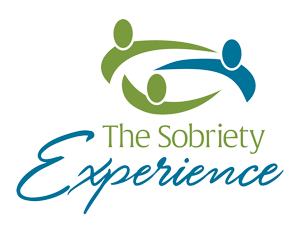Time in sober living is often dramatically proved when strategically adding elements like life coaching, recovery coaching, private therapy, career guidance, etc.
 Ongoing scientific research has consistently shown that the longer an alcoholic or drug addict can remain in a sober living environment (also referred to as: 3/4 houses, halfway houses and addiction recovery homes) and surround themselves with healthy, sober people, their chances of long-term sobriety increase exponentially. For some, adding other services can even further propel their chances for success, such as: life coaching, sober/recovery coaching, private or group therapy and more.
Ongoing scientific research has consistently shown that the longer an alcoholic or drug addict can remain in a sober living environment (also referred to as: 3/4 houses, halfway houses and addiction recovery homes) and surround themselves with healthy, sober people, their chances of long-term sobriety increase exponentially. For some, adding other services can even further propel their chances for success, such as: life coaching, sober/recovery coaching, private or group therapy and more.
It is important to understand the differences between therapy, life coaching, recovery coaching, career guidance and recovery planning. Life coaching incorporates basic life skills such as career guidance and recovery planning.
Recovery coaches and life coaches:
- Generally work with higher functioning clients
- Work in alliance designed by the coach and client together
- Are solution focused, remaining active and action oriented
- Focus mainly on present and future matters within the client’s life and recovery
- Regard negative self-beliefs as temporary and implements “homework” assignments between sessions.
- Do not diagnose or treat mental illness, co-occurring disorders or matters of drug-alcohol addiction
- Typically offer 1-2 in person or phone sessions per week but are available in between for issues that arise, usually at no extra cost too
- Operate more so on a peer-to-peer basis, as opposed to therapists which operate entirely on a clinician-to-patient relationship.
These days it’s becoming more and more common to see people in halfway houses and sober living homes working with private life coaches and recovery coaches. However, it’s much more common to see sober living home clients being enrolled in some level of either PHP (partial hospitalization) or IOP (intensive outpatient) drug & alcohol rehab program.
Therapy, on the other hand, can lend to some problematic behaviors as the client sees the therapist weekly with no additional contact, which is difficult for most addicts in early recovery.
Some of the premises of therapy include:
- Diagnosis and treatment, including that of mental illness and co-occurring disorders
- Works with deep seeded problems: Mental and behavioral health matters
- There is a hierarchical difference between the therapist and client
- Treatment planning, aftercare, etc. is largely determined by the therapist
- Emphasis is on past and present
- It is more so problem oriented
- Explores reasons and behaviors that initially created low self-esteem
- Accountability is commonly less expected.
- Uses therapy techniques, such as: CBT, DBT, EMDR, Motivational Interviewing, etc.
There are many differences when comparing sober/life coaches to therapists. It is important to keep in mind that no two drug addicts, alcoholics and/or mental health clients are ultimately identical in their issues. Ultimately, however, whether or not the client resides in a sober living home, halfway house, etc. does not really have much bearing as to whether or not he or she will benefit from therapy or coaching services. The truth of the matter is, nearly anyone new to the recovery can benefit to at least some degree from coaching and/or therapy.
.
For more information relating to this article or anything else on this website, or to inquire further about Sobriety Experience Sober Livings throughout the Phoenix-Scottsdale, Arizona regions, please contact us 24/7 at: (480) 744-0095 or (844) 700-9888.
.
The Sobriety Experience is a leading option for effective and affordable sober living and addiction recovery housing in and around the Scottsdale and Phoenix, Arizona Valley → 480-744-0095
WE ACCEPT ALL MAJOR CREDIT & DEBIT CARDS
![]()
EMAIL US NOW...




